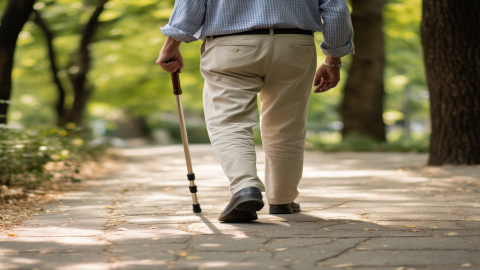What health education is available for hypertension patients in the community?
Health education for community patients with hypertension includes dietary guidance, exercise recommendations, medication management, blood pressure monitoring, and psychological adjustment. Scientific interventions help patients control their blood pressure and reduce the risk of complications. If blood pressure consistently exceeds 140/90 mmHg or symptoms such as dizziness or chest pain occur, prompt medical attention is recommended.
1. Dietary Guidance: Reduce sodium intake, limiting daily salt consumption to no more than 5 grams, and minimize consumption of pickled foods. Increase intake of vegetables, fruits, and whole grains, consume adequate high-quality protein, and avoid high-fat and high-sugar foods. Proper diet helps in managing blood pressure.
2. Exercise Recommendations: Engage in at least 150 minutes per week of moderate-intensity aerobic activities such as brisk walking, tai chi, or cycling; avoid strenuous exercise. Monitor heart rate during physical activity, ensuring no significant discomfort occurs. Regular exercise improves vascular elasticity.

3. Medication Management: Emphasize taking medications exactly as prescribed—on time and in correct doses. Patients should not adjust dosages or discontinue medications on their own. Inform patients about common adverse drug reactions and advise them to consult a doctor promptly if any discomfort arises. Proper medication use maintains stable blood pressure and prevents fluctuations.
4. Blood Pressure Monitoring: Instruct patients on using electronic sphygmomanometers, recommending blood pressure measurements twice daily—once in the morning and once in the evening—and recording the results. Teach proper measurement techniques, such as resting for 5–10 minutes before measurement and ensuring appropriate cuff tightness, to provide reliable data for blood pressure management.
5. Psychological Adjustment: Help patients alleviate anxiety and stress, and educate them about how emotional fluctuations affect blood pressure. Recommend mood-regulating activities such as listening to music, socializing, or developing hobbies to maintain emotional stability, which supports effective blood pressure control.
In daily life, maintain regular作息 (sleep-wake cycles) and avoid staying up late. Rise slowly in the morning to prevent orthostatic hypotension. Stay warm and avoid cold exposure, which may trigger blood pressure elevation. Attention to these details aids in blood pressure management.








